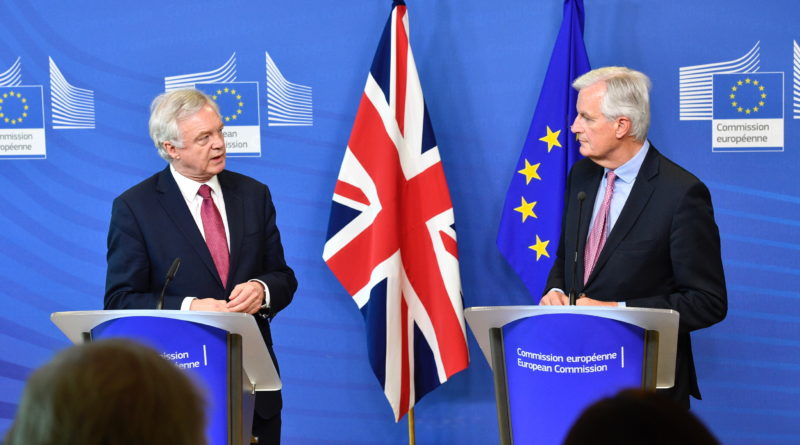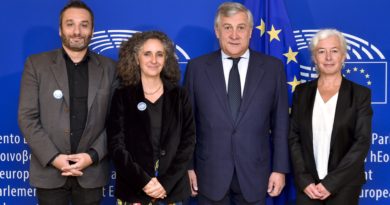Brexit negotiations begin: 3 key points (and related solutions)
Almost a year after the UK decided by referendum to leave the European Union, negotiations to define the terms of the exit are finally starting. Today in Brussels the UK delegation led by Brexit Secretary David Davis meets the EU Brexit team, led by Michel Barnier. The priority number one will be settling the rights of people most affected by the break-up: EU citizens living in Britain and British citizens living in the rest of the EU.
In principle, everyone agrees that their status should not change, but the devil is in the details. Based on the proposals of the European Commission and media reports about the UK position (an offer will be published on Monday, said David Davis in Brussels), these are three points of contention.
1. Which rights will be guaranteed. The UK Brexit Secretary has recently spoken of a “generous offer” towards EU citizens living in Britain. But what does “generous” mean? The EU proposes that all existing rights (study, work, set up business, benefit of social security and health care, recognition of professional qualifications etc.) continue to apply to expatriates for their lifetime. According to EU laws, these rights cover also family members, regardless of their nationality. This is currently not allowed under British law.
Katya Ivanova and Georgiana Turculet from the London School of Economics explain: “The UK is unique in applying exceptionally harsh family reunification standards towards its own citizens. British citizens are treated much the same way non-EU immigrants are in other EU countries, with the UK legal framework imposing restrictions typically reserved for third country nationals. To bring a non-EU/EEA spouse to the country, UK citizens must meet a minimum annual income requirement of £18,600, and the spouse has to pass an English language test. The minimum income threshold rises depending on the number of dependents. The current cost for a spouse visa, which stands at nearly £7,000, can be prohibitively expensive for many people.”
None of the solutions here seem to be right. If British law will apply, the “offer” to EU nationals will be diminishing rather than generous. If EU citizens will continue to benefit from EU laws, they will have privileges compared to Brits. One way to solve the problem, suggest Ivanova and Turculet, is for the UK to revise its family law altogether, applying to everyone – including British citizens – EU family law.
2. European Court of Justice. Assuming all rights are settled in an international agreement that covers the UK and the EU27, who should be the arbiter in case of disputes? The European Commission says it should be the European Court of Justice. The British government, in its current Brexit stance, wants to put an end to the jurisdiction of European Courts and “take back control” in the UK. Is there any other solution? A representative of European Citizen Action Service (ECAS), a citizens’ rights group in Brussels, says it would be possible to provide for a joint court or committee tasked to resolve differences in the withdrawal treaty.
2. Cut off date. Another open question regards who should be covered by the agreement. The UK says current conditions should apply to EU citizens who have been living in the country up to 29 March 2017, the date Article 50 was triggered. The EU says that current conditions apply in the UK as normal until the country effectively leaves the EU. This area of contention might become less important with time. The UK demand is justified by the fear of a last-minute rush of EU nationals settling in country. But this is not happening. To the opposite: latest statistics show a significant slow down in the arrivals (especially from Eastern Europe) and large numbers of European leaving the UK.
Even when these issues will be solved, the headaches will not be completely over. At present the EU negotiations guidelines do not allow for a separate deal on citizens’ rights. This means that if Brexit talks collapse on another item (for example the financial settlement), any previous achievement will be lost. Campaigning groups like the3million and British in Europe are calling for the ring fencing of a deal on citizens’ rights.
Lawyers at Matrix Chambers write on EUtopia that this would be possible. An agreement on citizens’ rights would need to include a ‘safeguard clause’ stating that its validity is not dependent upon the entry into force of any other agreement under Article 50. Lawyers also argue that the UK should ratify this agreement as a condition to move forward in the negotiations, to avoid the risk of a potential negative vote by the British parliament on the final deal.
Finally, there is the cumbersome procedure to obtain the permanent residence card in the UK (the equivalent for EU nationals of the Indefinite Leave to Remain). The European Commission is asking to simplify the process, but this is more likely to change because of the burden it causes on the Home Office, rather than as a response to requests from Brussels.
It is usually said that the settlement of these rights concerns 3.2 million EU citizens in the UK and 1.2 million British in the rest of the EU. In reality, the situation affects also British and non-EU spouses and children. An analysis by the Centre for Population Change on 2011 data shows that 41% of EU-born individuals in the UK are married and 11% are separated or divorced. One-third of the partnerships are with a UK citizen and one-third of the EU-UK partnerships have at least one dependent child. So the number of people affected by the Brexit talks that have just started is much larger than what usually reported.
At a press conference after the first day of meetings, negotiators said talks will take place one week per month and in between the teams will work on proposals and exchanges. Citizens’ rights, the financial settlement of what the UK owes the EU and the Northern Ireland border have been confirmed as top priorities. “On citizens’ rights we hope we can go reasonably fast,” said David Davis.
Text updated after the press conference at the end of the first day of negotiations.
Claudia Delpero © all rights reserved.
Photo: David Davis and Michel Barnier, by Mauro Bottaro © European Union.







I am one of the authors of the article mentioned. Thanks for mentioning our work. One correction, the second time you mentioned my name, it was misspelled. ‘Turculet’ is the correct name. Thanks. Georgiana
It was the terrible automatic correction. Sorry for this, it’s been corrected now.